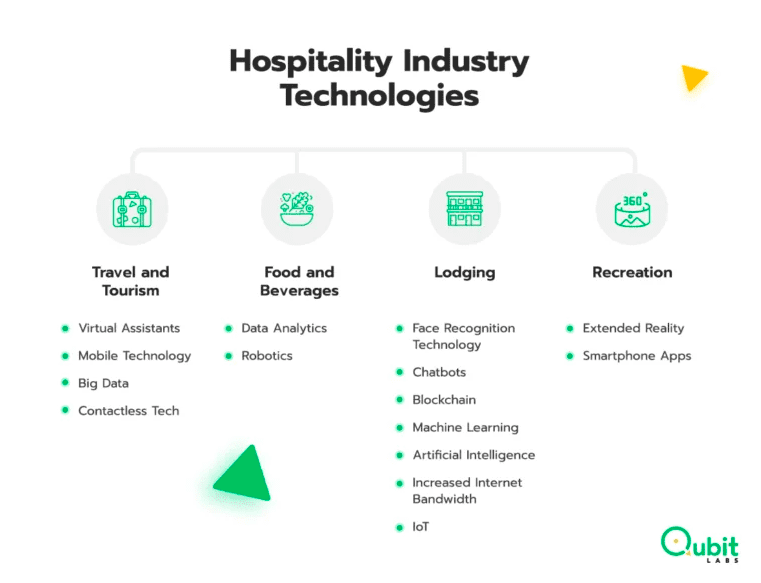How Hospitality Industry Benefits from Business Intelligence captures the essence of a transformative shift in the hospitality sector. With an increasing reliance on data-driven decisions, businesses in this industry are discovering how insights from business intelligence can enhance operational efficiency, elevate customer experiences, and ultimately drive profitability. This evolution not only helps in understanding market trends but also in personalizing services to meet guest expectations.
As hotels and restaurants embrace technology, they can leverage analytics to optimize everything from inventory management to customer engagement strategies. By harnessing the power of business intelligence, the hospitality industry is not just keeping pace with changes but is actively shaping the future of guest interactions and service delivery.
In today’s fast-paced world, the significance of staying organized and managing time effectively cannot be overstated. Whether you’re a student juggling multiple assignments, a professional balancing various projects, or a homemaker handling a busy household, having a solid plan in place can significantly enhance your productivity and reduce stress. This article will delve into practical strategies for effective time management and organization, ensuring that you can maximize your potential and achieve your goals.### Understanding Time ManagementTime management is the process of planning and exercising conscious control over the amount of time spent on specific activities.
Good time management enables an individual to complete more in a shorter period, lowers stress, and leads to career success. It involves prioritizing tasks based on their importance and deadlines, setting realistic goals, and making conscious choices about how to use your time.### The Importance of OrganizationOrganization complements time management. Being organized helps you find things quickly, reduces clutter, and creates a structured environment that enhances focus and productivity.
An organized workspace can lead to clearer thoughts and more efficient work processes, while an organized schedule helps you allocate your time more effectively.### Strategies for Effective Time Management
1. Set Clear Goals
Begin by defining your short-term and long-term goals. Use the SMART criteria – Specific, Measurable, Achievable, Relevant, Time-bound – to ensure your goals are realistic and attainable.
2. Prioritize Tasks
Not all tasks hold the same level of importance. Implement tools like the Eisenhower Matrix to categorize tasks into four quadrants, focusing on what is urgent and important first. This helps in allocating time wisely.
3. Create a Daily Schedule
Crafting a daily schedule helps you visualize your day and allocate specific time slots for each task. Tools like planners, calendars, or digital apps can assist in maintaining your schedule.
4. Use Time Blocks
Time blocking involves dedicating specific chunks of time to particular activities. This method can help you maintain focus and minimize distractions. For example, allocate a two-hour block in the morning for deep work, followed by a break.
5. Limit Distractions
Identify what disrupts your focus and take measures to mitigate these distractions. This could include turning off notifications on your devices, setting boundaries with colleagues or family during work hours, or creating a quiet workspace.
6. Learn to Say No
Overcommitting can dilute your focus and effectiveness. Be honest about your current workload and only take on additional tasks if they align with your goals and you can manage them effectively.
7. Review and Adjust
Regularly review your progress and make adjustments as necessary. Weekly reflections can help you understand what worked and what didn’t, allowing you to refine your approach for the future.### Tips for Staying Organized
1. Declutter Regularly
A cluttered environment can lead to a cluttered mind. Set aside time to regularly declutter your workspace, digital files, and even your schedule.
2. Use Organizational Tools
Embrace tools that help you stay organized. This could include planner apps, project management software, or even simple tools like folders and labels for physical documents.
3. Establish a Routine
A consistent routine can help streamline your day. Start with a morning routine that sets a positive tone for the day, and create an evening routine that allows you to wind down effectively.
4. Keep a To-Do List
Maintain an ongoing to-do list that you update daily. This helps you stay on top of tasks and provides a sense of accomplishment as you check items off.
5. Set Up a Filing System
Whether for physical documents or digital files, a well-structured filing system can save you time and frustration when searching for important information.
6. Batch Similar Tasks
Group similar tasks together to tackle them all at once. For example, set aside time to respond to emails, make phone calls, or perform administrative duties in one go.
7. Use Labels and Color-Coding
Visual cues can be incredibly effective for organization. Utilize labels and color-coding to categorize documents, tasks, and even calendar events, making it easier to find what you need quickly.### The Role of TechnologyIn our digital age, technology plays a crucial role in enhancing our time management and organizational skills. A plethora of apps and tools are available to assist with everything from scheduling and task management to note-taking and reminders.
Popular tools include:
Trello
A project management tool that allows users to create boards, lists, and cards to organize tasks visually.
Google Calendar
An essential tool for scheduling and reminders, enabling you to set up events and receive notifications.
Evernote
A note-taking app that helps you keep your thoughts organized and accessible from any device.
Pomodoro Timer

A technique that encourages focused work sessions followed by short breaks, boosting productivity.### Balancing Work and Personal LifeEffective time management and organization extend beyond work and academic responsibilities. It’s also essential to carve out time for personal interests, family, and self-care. Striking a balance can prevent burnout and ensure a well-rounded lifestyle. Set aside time for hobbies, exercise, and relaxation to recharge your mental batteries.### ConclusionIn conclusion, mastering time management and organization is a skill that can transform your life.
By implementing these strategies, setting clear goals, and leveraging technology, you can create a productive routine that not only helps you meet your deadlines but also fosters a sense of accomplishment and well-being. Remember, it’s not about doing more, but about doing what matters most effectively. Take the time to invest in your organizational skills today, and you’ll reap the benefits for years to come.


